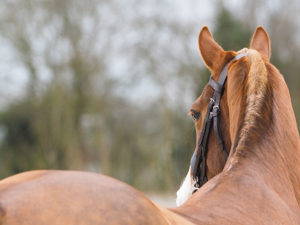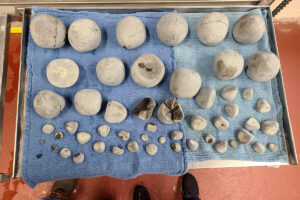The Role of Antioxidants for Horses

Carey Williams, PhD, extension specialist in equine management at Rutgers University, in New Brunswick, New Jersey, says free radicals can affect several cell components during oxidative stress.
“In humans, oxidative stress is associated with heart disease, cancer, Alzheimer’s disease, and other neurological disorders,” she says. “Free radicals promote breakdown of DNA by inhibiting the normal production process or breaking the strands (mutating normal DNA). They also degrade protein within cells.
“They also break down lipids (fats), which are major parts of cell membranes,” Williams continues. “This basically destroys the cell; all the contents leak out and the cell dies. Vitamin E helps maintain the cell by protecting the membrane and keeping it whole
Create a free account with TheHorse.com to view this content.
TheHorse.com is home to thousands of free articles about horse health care. In order to access some of our exclusive free content, you must be signed into TheHorse.com.
Start your free account today!
Already have an account?
and continue reading.

Related Articles
Stay on top of the most recent Horse Health news with

















